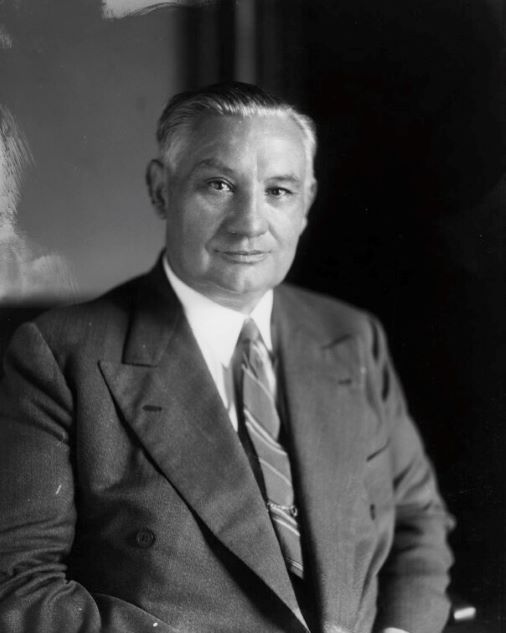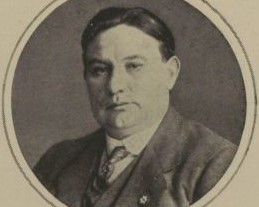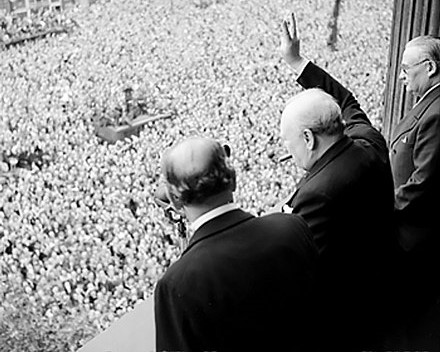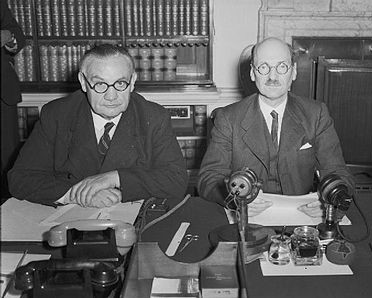Full name:
Ernest Bevin

"United Kingdom Secretary of State for Foreign Affairs"
Ernest Bevin
9 March 1881, Winsford, Somerset, England
14 April 1951 (aged 70), London, England
- Ernest Bevin

Bevin in 1920

Ernest Bevin standing to the right of Winston Churchill who waves to crowds on VE Day, Whitehall, London, England, 8th of May 1945

Ernest Bevin (left) with Clement Attlee, 1945